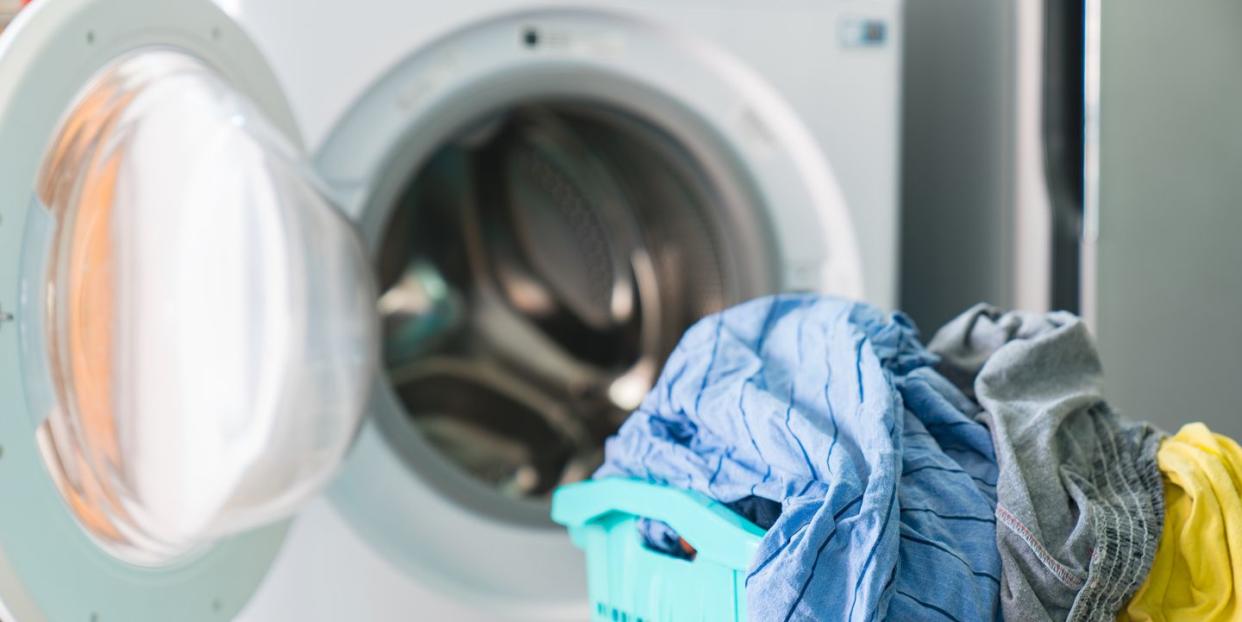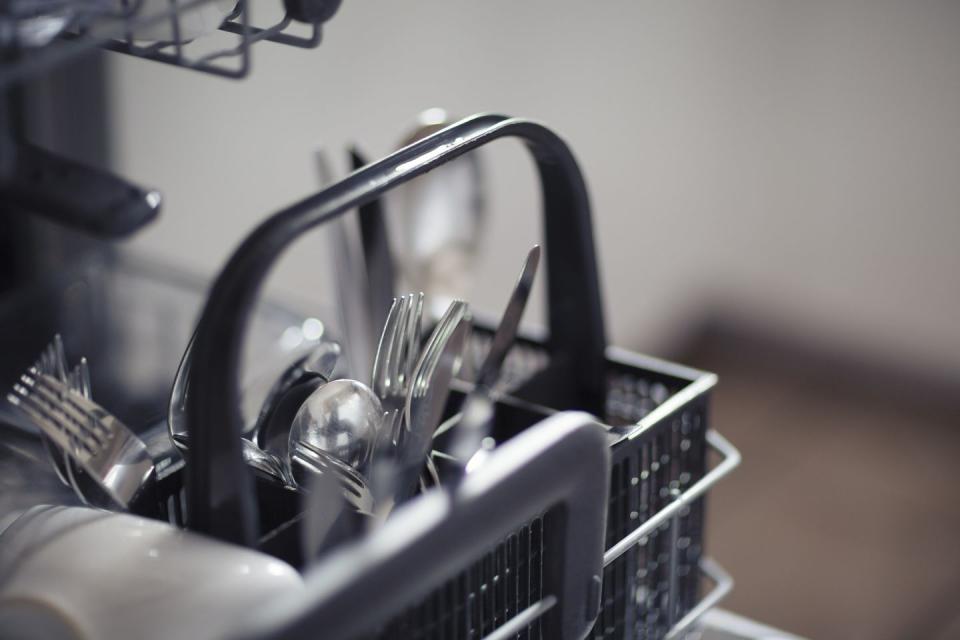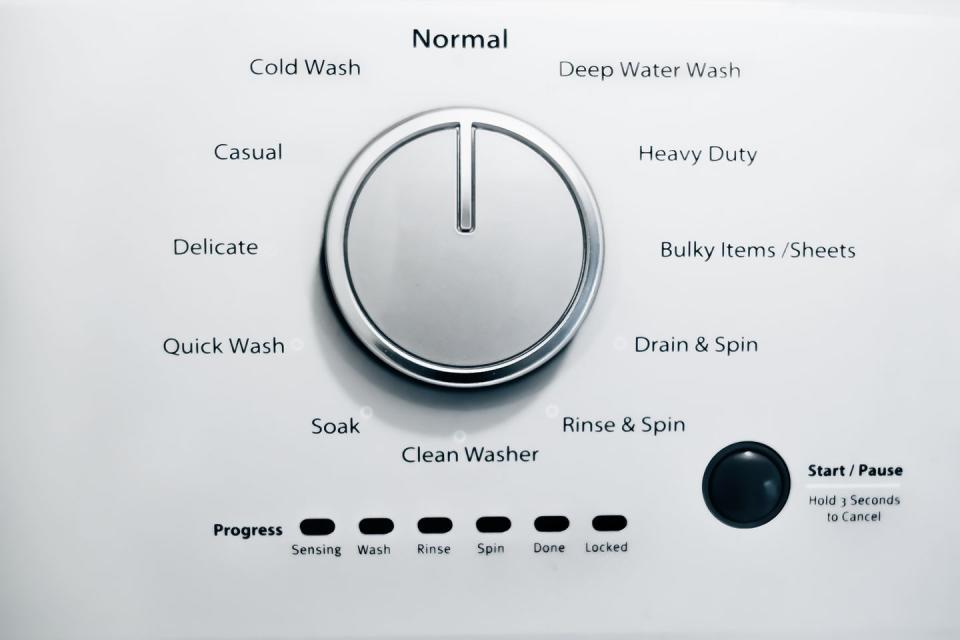What are the off-peak times to run your appliances, and are they cheaper?

Want to know more about off-peak energy times? Whether it's your washing machine or dishwasher, some energy suppliers offer cheaper tariffs if you run your appliances during off peak times, when fewer people are demanding energy supplies. While peak hours will vary slightly by area, it's a great way to save money and keep those bills down.
The National Grid will pay millions of Brits to turn their electricity off this evening (Monday 23rd January) between 5-6pm, as part of an emergency scheme to prevent blackouts. Households around the UK could receive payments of up to £20 back if they don't use ovens, washing machines, dishwashers, game consoles or tumble dryers during peak times tonight. For more information about how to save, visit nationalgrideso.com.
Here's everything you need to know about running your appliances at off-peak times:
What are peak and off-peak times for electricity?
While this depends on your energy provider, off-peak hours tend to be quieter periods when power demands are at their lowest (for example, between 10pm and 8am). Not everyone has the luxury to do the laundry before 8am, but it's worth checking with your provider to find a cheaper running time that suits your routine.
According to SSE Energy Services, with Off-Peak E, you get eight hours at the cheapest rate for stored heat each day. This will begin at 10pm and last for eight hours. Meanwhile, Off-Peak F offers you 10.5 hours of cheaper-rate electricity for stored heat each day. These times are between 1.30pm and 4pm, and overnight between 11pm and 7am. Finally, the cheapest rate is on Off-Peak Fx (between 4am and 2.30pm).
What is the cheapest time to use your washing machine?
According to the Daily Record, the most expensive time to use your washing machine or tumble dryer is between 4pm and 7pm. Energy prices are at their lowest between 10pm and 5am, but make sure you never leave it on over night as this could be a fire risk.
Other ways to keep costs low include washing clothes less (save a pile of laundry rather than running a half-empty cycle) and washing with cooler water. Switching the temperature to 30 degrees can cut your washing machine's energy use in half, compared to 40 or 60 degrees.
When it comes to keeping saving money, check the efficiency of your device. "The energy rating should be printed on the energy label of your washing machine device and will be ranked from G-A with A being the most efficient model," Les Roberts, content manager at Bionic, told The Express. "The more efficient models cut the KwH used per cycle significantly, so running costs will be much lower."
Older washing machines tend to less energy efficient, so Les suggests it could be worth updating yours if you've had it for more than 10 years. Simple changes can help your machine to last longer, including not overdosing on detergent and only putting on a cycle when you have a full load.
Les added: "Also turn your washing machine off when you are not using it, so it is not wasting energy on standby and make sure to regularly clean your appliance."
How can I benefit from off-peak electricity?
According to Compare The Market, you will need to be on an Economy 7 or Economy 10 tariff to benefit from cheaper hours. A great option for those who use a lot of energy during the night, these will offer you seven or 10 hours of cheaper electricity. It's worth knowing that daytime rates can be steep on these tariffs, so only switch if you will be using appliances more after hours.

Will using an off-peak tariff be cheaper?
Yes, but this depends on your tariff and you must check with your provider. Some energy providers charge less for using electricity at certain times of the day. Only customers on an Economy 7 or Economy 10 tariff will benefit from off-peak hours and pay less for the electricity they use at night. If you are thinking of swapping provider, it's worth researching to see which ones offer off-peak discounts.
How do you know if you have an off-peak tariff?
According to Compare The Market, this information should be displayed on your electricity bill or meter reading. Look out for two dials – one for peak and one for off-peak. You can also contact your provider if you are unsure if you have an off-peak tariff.
Economy 7 tariff measures your electricity usage based on two different prices per kilowatt; an on-peak rate and an off-peak one. Like its name suggests, Economy 7 offers an off-peak rate for seven hours of the night. The on-peak price applies to the other 17 hours of the day.
Economy 10 works in a similar way, but instead offers households 10 off-peak hours, with some of them falling during the quieter parts of the day.

What uses the most electricity in a home?
According to Compare The Market, the following list of items uses the most electricity in a home...
LCD TV (£130 estimated annual running costs)
Fridge freezer-A spec (£115)
Tumble dryer (£105)
Electric hob (£85)
Electric oven (£60)
Dishwasher (£55)
Kettle (£48)
What other ways can you save money on appliances?
With costs continuing to rise, there are lots of other ways you can save money on your energy bills. These include:
Wash clothes less often. If you can, try to save your laundry load for a few times a week instead of everyday
Wash clothes at 30°C or 20°C when possible. This will also help to reduce any clothes shrinking
Clean your washing machine and dishwasher every three months to prolong their lifespan
Avoid using the tumble dryer
Don't rinse dishes before putting them in dishwasher. Scrape any leftovers in your bin or compost heap instead
Only run a cycle when your dishwasher is at full capacity
Set your dishwasher to run during the evening. Many energy companies charge more during peak hours, or when energy is used most often
Consider buying a more energy-efficient appliance (look out for the A+++ sticker when shopping around)
You Might Also Like


